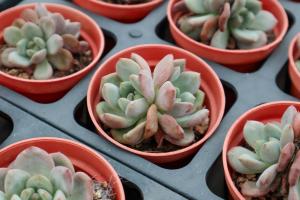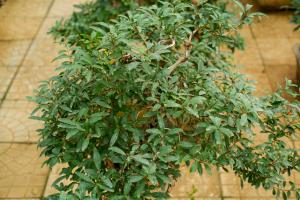Can you recycle plant pots?
Plant pots are ubiquitous in gardens around the world. They are essential for starting and growing plants – but what do you do with them once your plants have grown? Can you recycle plant pots? The answer is not as simple as you might think.
The challenge of recycling plant pots
The challenge of recycling plant pots comes from the variety of materials they are made from. Common materials include plastic, terracotta, and ceramic. Unfortunately, not all of these materials are recyclable in the same way – which means that there is no one-size-fits-all solution for recycling plant pots.
Plastic plant pots, for example, can be recycled in many places. Some garden centers have collection programs for plastic pots, while others accept them in curbside recycling bins. Before you throw your plastic plant pots in the recycling bin, however, make sure to check your local recycling guidelines to see if they are accepted.
Terracotta and ceramic plant pots, on the other hand, are more challenging to recycle. These materials can’t be recycled in the same way as plastic, and they aren’t always accepted in curbside recycling programs. Some garden centers may accept terracotta and ceramic pots for recycling, but you should check with your local center to see if they have a program in place.
Alternatives to recycling plant pots
If you can’t recycle your plant pots, what should you do with them? Here are a few alternatives:
Reuse them for other plants: Even if your current plant has outgrown its pot, you might be able to find a new use for the pot. Consider planting a new plant, or dividing your existing plant into several pots.
Donate them to a garden center: Many garden centers accept plant pots as donations. They can use them to grow new plants, or offer them to customers who need them.
Use them for other purposes: Plant pots can be repurposed for a variety of uses. They make great organizers for tools, art supplies, or office items. You could also use them as decoration by painting or decorating them.
Dispose of them responsibly: If you can’t find a way to reuse or recycle your plant pots, make sure to dispose of them in a responsible way. Check with your local waste management facility to see if they have special instructions for plant pot disposal.
The environmental impact of plant pots
While recycling or properly disposing of plant pots is important, it’s also important to consider the environmental impact of producing and using them in the first place. Some materials used in plant pots, such as plastic, have a significant impact on the environment. Plastic pollution is a growing problem around the world, and reducing our use of single-use plastics like plant pots is one way to combat it.
Another way to reduce the environmental impact of plant pots is to use alternative materials. Biodegradable plant pots made from materials like coconut coir, rice hulls, or mushroom roots are becoming more popular. These pots break down over time and can be composted along with the plant inside – making them a more sustainable choice.
Conclusion
Recycling plant pots is a challenge because of the variety of materials they are made from. While plastic plant pots can often be recycled, terracotta and ceramic pots are more challenging to recycle. If you can’t recycle your plant pots, there are still alternatives to throwing them in the trash – such as reusing them, donating them, or using them for other purposes. Ultimately, reducing our use of plant pots by choosing more sustainable alternatives is the best way to reduce their environmental impact.

 how many times do yo...
how many times do yo... how many planted tre...
how many planted tre... how many pine trees ...
how many pine trees ... how many pecan trees...
how many pecan trees... how many plants comp...
how many plants comp... how many plants can ...
how many plants can ... how many plants and ...
how many plants and ... how many pepper plan...
how many pepper plan...






























